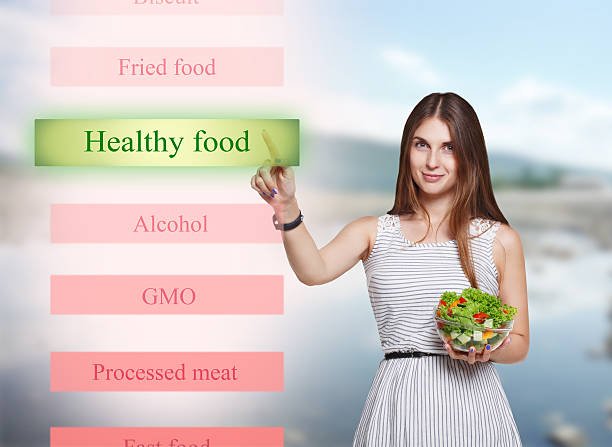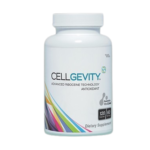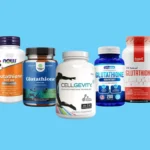
Learn what to avoid when taking glutathione to maximize its benefits and ensure your well-being.
Have you ever wondered how to get the most out of a supplement often called the “master antioxidant”? Glutathione, naturally produced in our bodies, plays a crucial role in fighting oxidative stress, supporting the immune system, and aiding in detoxification. It’s no wonder that more and more people worldwide are turning to glutathione supplements to boost their health and wellness.
But here’s the catch: the effectiveness of glutathione doesn’t just depend on taking it regularly—it also hinges on avoiding certain substances and habits that can interfere with its benefits.
This blog is here to guide you on maximising the power of glutathione by understanding what to steer clear of while using it. Whether you’re new to glutathione or already reaping its benefits, this advice can help you get the most out of every capsule or supplement.
Let’s uncover the simple yet impactful steps you can take to ensure glutathione works wonders for your health.
The Many Benefits of Glutathione
Here’s a closer look at why glutathione deserves the spotlight in your health routine:
- Immune System Support: Glutathione boosts the activity of white blood cells, helping your body fight off infections and recover faster from illnesses.
- Detoxification: Your liver relies on glutathione to filter out toxins, heavy metals, and harmful substances, keeping your body clean and balanced.
- Skin Health: Beyond its detoxifying abilities, glutathione is known for promoting clearer, brighter skin by reducing melanin production and combating oxidative damage.
- Anti-Aging Properties: By reducing oxidative stress, glutathione helps slow the signs of ageing, keeping your skin and body youthful.
- Neurological Support: Studies suggest that glutathione plays a role in protecting the brain from oxidative damage, potentially benefiting conditions like Alzheimer’s and Parkinson’s disease.
- Respiratory Health: Glutathione supports lung function, making it helpful for individuals dealing with conditions like asthma or chronic obstructive pulmonary disease (COPD).
- Exercise Performance: For active individuals, glutathione helps reduce muscle fatigue and speeds up recovery, improving endurance and strength.
- Cardiovascular Health: Glutathione can support heart health and reduce the risk of diseases like atherosclerosis by minimizing oxidative stress and inflammation.
Choosing the Right Form of Glutathione
When it comes to supplementation, glutathione comes in various forms, each with different absorption rates. The most common types include:
- Reduced Glutathione: Widely available and effective, though absorption can vary.
- Acetyl Glutathione: A more stable form, designed for better absorption in the digestive system.
- Liposomal Glutathione: Encased in fat particles for improved bioavailability, making it a popular choice for those looking for maximum effectiveness.
Selecting the right glutathione supplement depends on your needs, budget, and health goals. Doing a bit of research or consulting with a healthcare professional can help you find the best option.
By understanding what glutathione does and how to choose the right supplement, you’re already one step closer to unlocking its full potential for better health.
Lifestyle Factors that Can Deplete Glutathione
Glutathione is an incredible molecule for improving your health, but certain lifestyle habits can work against it. Understanding what to avoid is crucial if you’re taking glutathione supplements or looking to optimize your natural levels. Let’s look at some common culprits that deplete glutathione and how they impact your body—especially for those living in Nigeria, where certain lifestyle challenges can make a difference.
Smoking: A Major Glutathione Depleter
If you’re a smoker, it’s time to think twice about lighting up, especially if you’re taking glutathione. Here’s why:
- Increased Oxidative Stress: Smoking floods your body with harmful free radicals, dramatically increasing oxidative stress. This burdens your glutathione levels heavily as it neutralises these harmful substances over time.
- Impact on the Liver: Your liver is the powerhouse for glutathione production, and smoking adds another strain layer. Since your liver is already busy filtering out toxins from cigarette smoke, it has less capacity to produce the glutathione your body needs.
What You Can Do
- Quit Smoking: This is the best way to support your body’s natural detoxification process and ensure optimal glutathione levels.
- Seek Support: If quitting seems challenging, consider speaking to a healthcare professional or joining a support group to guide you through the process.
Excessive Alcohol Consumption: A Double Blow to Your Liver and Glutathione
Alcohol can also take a toll on your glutathione levels, especially if consumed in large amounts.
- Depletion of Glutathione Stores: Alcohol metabolism produces toxins like acetaldehyde, which requires glutathione to break down and eliminate. Over time, this process can deplete glutathione reserves.
- Liver Damage: Chronic alcohol consumption impairs the liver’s ability to produce glutathione, which can lead to long-term damage and reduced detoxification capacity.
- Reduced Effectiveness of Supplements: If your liver is overwhelmed, it can’t fully utilize the glutathione supplements you’re taking, meaning you’re not getting the maximum benefits.
What You Can Do
- Moderate Your Alcohol Intake: Stick to safe drinking limits, or better yet, avoid alcohol entirely while taking glutathione supplements.
- Hydrate: Drinking plenty of water can help flush toxins from your system and reduce the strain on your liver.
- Prioritize Liver Health: Incorporate liver-supporting foods like garlic, onions, and leafy greens into your diet to give your liver the nutrients it needs to produce glutathione.
By avoiding smoking and excessive alcohol consumption, you’ll not only protect your glutathione levels but also enhance your overall health. Remember, small lifestyle changes can significantly affect how well your body functions—and how effectively glutathione can work for you!
Dietary Choices to Avoid When Taking Glutathione

Glutathione is often called the body’s “master antioxidant” for its powerful ability to combat oxidative stress and support overall health. However, your dietary choices play a big role in how effectively it works. To maximize the benefits of glutathione supplements and ensure your body is producing enough naturally, here are some common foods and ingredients to avoid.
Caffeine: Moderation Is Key
While a cup of coffee or tea can boost your day, excessive caffeine consumption might interfere with glutathione’s effectiveness.
- How It Affects Glutathione: High doses of caffeine can decrease glutathione levels and reduce its absorption when taken in supplement form.
- What You Can Do:
- Limit caffeine intake, especially close to the time you’re taking your glutathione supplement.
- Choose antioxidant-rich coffee or tea to balance potential drawbacks.
- Replace one caffeinated drink daily with water or herbal tea for better hydration and detox support.
Processed foods are convenient but can work against your glutathione goals.
- Why They’re Harmful: These foods often contain unhealthy fats, added sugars, and artificial additives, all of which increase oxidative stress and inflammation in the body. This forces glutathione to work harder, reducing its overall effectiveness.
- Examples to Watch For: Instant noodles, sugary cereals, soft drinks, packaged snacks, and pre-made meals.
- Healthier Alternatives:
- Opt for whole, nutrient-dense foods like fruits, vegetables, and lean proteins.
- Incorporate Nigerian staples like beans, yams, and leafy greens into your meals.
Fried Foods: Oxidative Stress on a Plate
The high temperatures used in frying create harmful compounds that raise oxidative stress, directly countering glutathione’s antioxidant properties.
- Impact on Glutathione: Fried foods force your body to produce more glutathione to neutralize these harmful compounds, which can deplete your natural stores.
- Better Cooking Methods:
- Try grilling, steaming, baking, or boiling instead of frying.
- Use healthy oils like olive or coconut oil in moderation.
Aspartame: The Sweetener to Skip
Artificial sweeteners like aspartame may seem harmless, but they can harm your liver, where glutathione is primarily produced.
- The Problem with Aspartame: Studies suggest it can cause inflammation and oxidative damage in the liver, reducing its ability to produce and recycle glutathione effectively.
- Healthier Choices:
- Opt for natural sweeteners like honey or stevia.
- Reduce your overall sugar intake to support your liver health.
Preservatives like sodium benzoate and sodium metabisulfite, commonly found in packaged foods, can lower your glutathione levels.
- Why It Matters: These chemicals increase your body’s toxic load, forcing glutathione to work overtime.
- How to Avoid Them:
- Check food labels carefully and choose preservative-free options.
- Focus on fresh, locally sourced ingredients like fruits, vegetables, and whole grains.

Medications and Supplements to Consider Carefully
Medications That Can Deplete Glutathione
Did you know that some common medications might reduce your body’s natural glutathione levels? While these drugs are often necessary for specific health conditions, they can impact how effectively your liver produces this vital antioxidant.
Acetaminophen (Paracetamol) and Aspirin
- The Effect: These medications are processed through the liver, the primary site of glutathione production. Over time, they can deplete glutathione stores, especially if used in high doses or for extended periods.
- What You Can Do:
- Consult a doctor: Always discuss your medications with a healthcare professional, especially if you’re taking glutathione supplements.
- Alternative pain relief options: Inquire about alternatives that might be less taxing on your liver.
- Moderation is key: Use these medications only when necessary and avoid self-medication.
Dairy Sensitivity and Glutathione
Dairy products, while rich in nutrients, may not always work well with glutathione supplementation, particularly for individuals with sensitivities or lactose intolerance.
Why Dairy Might Be a Concern
- Inflammatory Potential: For people who are sensitive to dairy, consuming it can lead to inflammation, which might interfere with how your body uses glutathione.
- Interaction with Cysteine: Casein, a protein in dairy, could potentially affect cysteine, a key amino acid in glutathione production.
Who Should Be Cautious?
- Those with Lactose Intolerance: Symptoms like bloating, stomach discomfort, or diarrhoea after consuming dairy are signs you might need to cut back.
- Individuals with Chronic Inflammation: If you have inflammatory conditions, avoiding dairy might help improve glutathione’s function.
What to Do Instead
- Choose Dairy Alternatives: Consider plant-based options like almond milk, coconut milk, or soy milk.
- Monitor Your Body: If you suspect dairy is affecting your health, try an elimination diet or speak to a nutritionist.
The Importance of Professional Guidance
Because everyone’s health needs are different, it’s crucial to speak with a qualified healthcare provider to assess your unique situation. This ensures that any potential interactions between glutathione, medications, or dietary habits are managed safely and effectively.
By taking these precautions, you can protect your liver, optimize glutathione’s benefits, and enjoy a healthier, more vibrant life.
The Skin-Lightening Myth
Is Glutathione a Skin-Lightening Agent?
There’s a widespread belief that glutathione can dramatically lighten skin tone. This misconception has gained traction in beauty communities, often driven by marketing strategies targeting individuals seeking lighter complexions. However, the science tells a different story.
- No Strong Evidence: Research does not conclusively support glutathione as an effective skin-lightening agent. Any changes in skin tone are likely minimal and temporary.
- Other Factors at Play: If you notice a glow or lightening effect while taking glutathione, it may be due to reduced inflammation, improved skin health, or better protection against UV damage—not a direct bleaching effect.
A Healthy Perspective on Skin Tone
It’s essential to question the ethics of promoting glutathione as a skin-lightening product. Instead of focusing on altering your complexion, embrace your natural beauty and use glutathione for what it’s proven to do—supporting your health, detoxification, and cellular repair.
Natural Ways to Boost Glutathione Levels

While supplements can help, there are natural ways to enhance your body’s glutathione levels. These methods are not only effective but also promote overall wellness.
1. Embrace a Balanced Diet
A diet rich in specific nutrients can significantly support glutathione production.
- Fruits and Vegetables: Opt for spinach, avocado, and asparagus, which are naturally high in glutathione.
- Sulfur-Rich Foods: Include broccoli, garlic, onions, and kale in your meals. These foods contain sulfur-containing amino acids that aid glutathione synthesis.
- Lean Proteins: Eggs, fish, and chicken provide essential building blocks for glutathione.
2. Stay Active with Regular Exercise
Exercise isn’t just good for your heart; it also boosts antioxidant activity, helping your body naturally produce more glutathione. Start with moderate activities like walking, cycling, or yoga to maintain a consistent routine.
3. Prioritize Quality Sleep
Your body regenerates during sleep, making rest crucial for glutathione production. Aim for 7–9 hours of sleep nightly to allow your cells to repair and replenish.
4. Hydrate for Detoxification
Water plays a vital role in detoxifying your body, which is directly linked to glutathione function. Drink plenty of water daily, and consider adding lemon or cucumber slices for added benefits.
5. Incorporate Glutathione-Boosting Foods
Here are some Nigerian-friendly options to include in your diet:
- Almonds: A handy snack that supports antioxidant activity.
- Turmeric: Known for its anti-inflammatory properties, turmeric can be added to soups or teas.
- Avocados: Rich in healthy fats that support liver health and glutathione production.
- Milk Thistle: Traditionally used for liver detoxification, it may also enhance glutathione levels.
By focusing on natural, holistic ways to boost glutathione, you not only enhance its effectiveness but also improve your overall health. Avoid falling for myths or quick fixes—health is a journey best fueled by informed choices and sustainable habits.
The Importance of Individualised Approaches
Every Body Is Unique
Your body is as unique as your fingerprint. Factors like genetics, metabolism, overall health, and daily habits all influence how effectively glutathione is absorbed and utilized. For instance:
- Genetics: Some individuals naturally produce lower levels of glutathione due to genetic factors.
- Health Conditions: Chronic illnesses like diabetes or liver disease can impact how your body processes and benefits from glutathione.
- Lifestyle: Smokers or those with high-stress levels may deplete their glutathione stores faster than others.
This variability means that what works for one person might not work for another, making a tailored approach essential.
Seek Professional Guidance
Before incorporating glutathione into your wellness routine, it’s a good idea to consult a healthcare professional or registered dietitian. They can provide:
- Personalized Dosage Recommendations: The right dosage depends on your age, weight, and health goals. Taking too little might not yield results, while excessive amounts can strain your body.
- Form Selection: With options like reduced glutathione, acetyl glutathione, and liposomal glutathione, a professional can help you choose the one best suited to your needs.
- Timing Advice: When and how you take glutathione (e.g., with or without food) can influence its absorption and effectiveness.
Why Individualized Approaches Matter
Here’s why a customized plan can make all the difference:
- Maximize Benefits: Tailoring your intake ensures you’re getting the full range of glutathione’s benefits, from improved skin health to enhanced detoxification.
- Avoid Side Effects: Overuse or improper combinations with other supplements or medications can lead to unwanted side effects.
- Targeted Results: Whether your goal is boosting immunity, supporting your liver, or managing oxidative stress, a personalized plan aligns with your objectives.
Empowering Your Glutathione Journey
By understanding your unique needs and consulting professionals, you set yourself up for success with glutathione. It’s not just about taking a supplement—it’s about making informed decisions that work in harmony with your body.
So, as you embark on your journey to better health with glutathione, remember: Your body deserves a solution tailored to you.
Cellgevity: Your Ultimate Glutathione Supplement Solution
If you’re looking to boost your glutathione levels and reap the full benefits of this powerful antioxidant, Cellgevity might just be the game-changer you need. This advanced formula combines glutathione precursors with other potent ingredients, making it one of the most effective supplements for overall health and wellness.
Why Choose Cellgevity for Your Health Goals?
Cellgevity is more than just a supplement—it’s a scientifically formulated solution to enhance your body’s natural defences. Here’s why you should consider it:
- Boosts Glutathione Production: Unlike standard glutathione supplements, Cellgevity delivers glutathione precursors like RiboCeine, which your body converts into glutathione efficiently.
- Supports Detoxification: With enhanced glutathione levels, Cellgevity helps your liver eliminate harmful toxins, ensuring your body stays clean and healthy.
- Enhances Energy and Stamina: By reducing oxidative stress, Cellgevity promotes better cellular health, keeping your energy levels high throughout the day.
- Strengthens Immune Health: Glutathione is a cornerstone of a robust immune system, and Cellgevity ensures you’re well-equipped to fight off illnesses.
- Improves Skin Health: Say goodbye to dull, tired skin! With its antioxidant properties, Cellgevity can contribute to a glowing, youthful complexion.
- Addresses Inflammation: Ingredients like curcumin and resveratrol in Cellgevity work to reduce inflammation, a key contributor to many chronic illnesses.
- Convenient and Safe: Designed with your needs in mind, Cellgevity is easy to incorporate into your daily routine and has been tested for safety.

Awaken your cells and Live healthier.
Conclusion: The Key to Unlocking Glutathione’s Potential
Maximizing the benefits of glutathione isn’t just about taking a supplement—it’s about a holistic approach to your health. This includes:
- Eating a balanced diet rich in antioxidants.
- Avoid substances like smoking, excessive alcohol, and unhealthy foods that deplete glutathione levels.
- Embracing lifestyle habits like regular exercise, adequate sleep, and hydration.
By making informed choices and incorporating effective solutions like Cellgevity, you’re empowering yourself to take control of your health and well-being.
Call to Action: Take Charge of Your Health Today!
Have you tried glutathione or Cellgevity supplements? Share your experiences in the comments below! Let’s keep the conversation going and learn from one another.
For more tips on health and wellness, subscribe to our blog today and never miss an update. Don’t forget to check out related articles on how to live your best, healthiest life. Together, we can build a stronger, healthier future.
FAQ (Frequently Asked Questions)
- What is the risk associated with taking glutathione?
Taking glutathione supplements carries a minimal risk of side effects. While specific risks are not well-documented, reported side effects include cramping, bloating, and allergic reactions. It’s important to monitor your body’s response and consult with your healthcare provider if you experience any unusual symptoms [2]. - What are the possible side effects of glutathione?
The possible side effects of glutathione supplementation may include cramping, bloating, and allergic reactions. However, these side effects are not commonly reported. If you experience any unusual symptoms, it’s advisable to seek medical advice [1]. - How much glutathione should I take per day?
The proper dosage of glutathione is still being studied, and there is insufficient scientific evidence to determine the exact recommended dose. It is important to consult with your healthcare provider, who can provide personalized guidance based on your individual needs and circumstances [2]. - What should I avoid while taking glutathione?
It is advisable to avoid certain medications and alcoholic beverages when taking glutathione. Glutathione may interact with antibiotics, chemotherapy drugs, and antidepressants, affecting their efficacy and potentially increasing the risk of adverse effects. Informing your healthcare provider about all the supplements and medications you are taking is crucial to ensure your safety [2]. - Can I take vitamin C while taking glutathione?
There is no known interaction between glutathione and vitamin C. In fact, vitamin C is often considered to complement the effects of glutathione by helping to regenerate it in the body. However, it is always best to consult with your healthcare provider regarding any specific supplement combinations [2]. - What happens to my body when I stop taking glutathione?
When you stop taking glutathione supplements, your body will resume its natural production of glutathione. However, it’s important to note that individual responses may vary. If you have any concerns about discontinuing glutathione supplementation, it is best to consult with your healthcare provider [2].
Disclaimer: The content of this blog post is for informational purposes only and does not constitute medical advice. Always consult with a qualified healthcare professional before starting any supplementation regimen or making changes to your current treatment plan.



